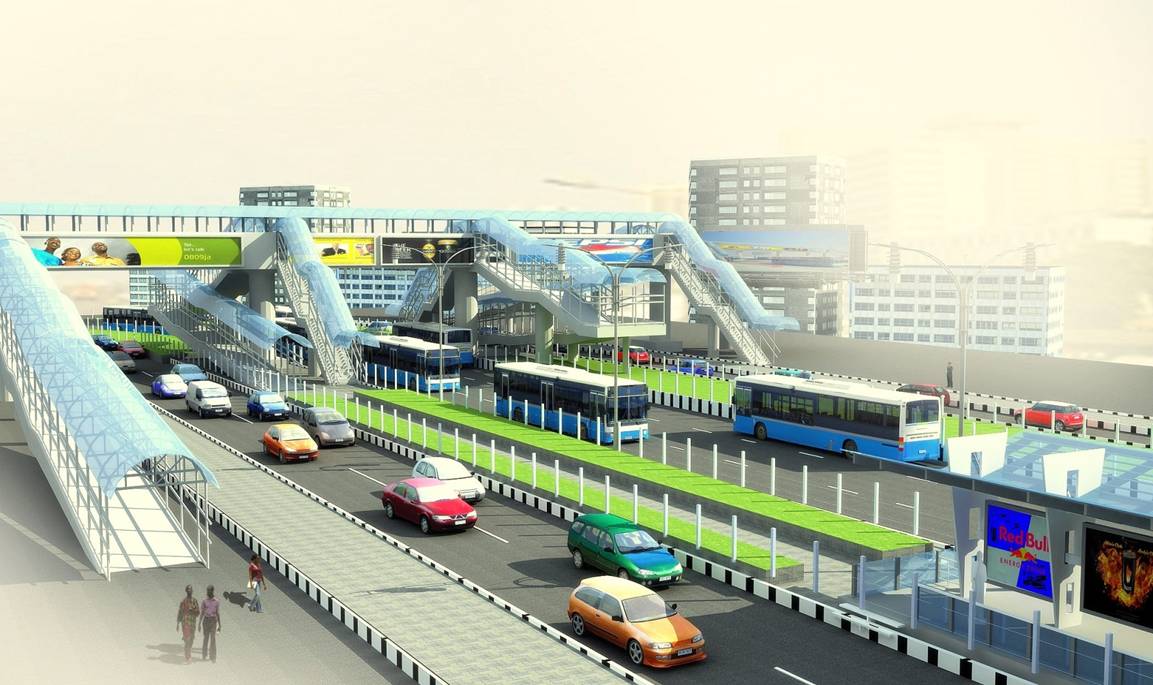April 2015 I took a 30 minutes break on a field job with the institute of Biodiversity when I got into this conversation with Mrs Garlinde, the coordinator. She was taking a break too. She opened the conversation by asking where I was from. Like most Germans, She has been to South Africa and Namibia, but not to Nigeria. “I’ve heard so much about Lagos though” she added. Same line Professor Freytag used the other day I thought. Then the big question: “do you have transportation means in Nigeria”? At that question my eye brows came closer as wrinkles formed on my forehead. But then again I thought, in that moment, quickly “what could she intend to ask”? All in my mind I rephrased it to: “is it easy for a visitor to move around in Nigeria? Is there an efficient transport service”? My answer to her intended question got me thinking towards a road transport policy.
First, I took the bold step to admit the near impracticality of having developed railway network – the financing, infrastructure and politics in consideration – in even in the long run. The main reason being that we ‘populated before development’ instead of the reverse. Moreover, how have we fared on road transportation? Poor road network yet in decrepitude. Let’s begin from the simple to the less simple. Let’s face road transport development.
We have a road transport system, but not a transport service. They surely would ‘convey’ persons or goods to destination, but how you or the goods get there is the story: comfort is not in the calculus, buses have no air-condition (in this tropical weather). The seats, made of woods and iron materials have jagged edges; the sitting arrangement, the noise, the smoke, everything just paints a lucid idea of chaos. In Lagos, the traffic draws global attention: small-rickety buses, motorcycles, long trucks and cars come to a halt, contributing to a hone parade. There is utter deregulation in that sector to a fault. Perhaps mis-deregulation tries to describe the structure. Every Nigerian adult is a transporter once he can afford a rickety bus or motorcycle; licencing is a known shady business. Drivers are ill-trained hence high rate of road mishap. Drivers involved in ghastly accidents get to keep their licences and return to driving. Teflon, no sanction! Transport fares are haggle determined; in that process, acerbic words are exchanged. No gentleman, no lady, no decency.
Nonetheless, the sector provides employment to many. It’s about the easiest private investment and income earner for any poor household. It is one of the largest informal sectors in the economy. Any policy intent on fairness must incorporate these stylized facts. Scaling the disservice against the service and bias that comes with it presents no easy decision rule; but the status quo is not Pareto efficient. Something could be done to improve the lot of most without making any worse for others.
The key is to introduce some degree of regulation in the sector. Policy makers must make this billion Naira sector attractive for credible investors by setting entry and operative standards that guarantee that the necessary services are provided: operators would be duly registered as transport companies, minimum number of buses and drivers- say minimum of 20 buses with 30 drivers to work in shifts, long bus types, fully air-condition, built-in address system, two exit doors, and secured drivers’ welfare. A fair way to initiate such policies is by initial public service which we have already seen in the BRT model. The next stage would be the announcement to set industry standards and evaluate mass reactions to such plans and to embark on public enlightenment programs. Next is to hold PPP and stakeholder seminars and workshop to attract investors and present the policy implementation timelines. The next great thing to do would be the welfare calculus for loss minimization: The early phases of such restructuring would likely increase unemployment, social vices and transport costs. Since this known, it is not uncertainty, but a risk worth taking. Therefore, policy makers must cushion the impact by designing orientation programs and training for these ‘erstwhile’ drivers and road workers so that they remain relevant in the new framework. Still many would be retrained and reemployed as drivers; others would be harnessed to community works such as road cleaning and maintenance, flower planting and waste collection. Deregulated sales of tickets also have employment effects. On costs, transportation could be subsidized at the initial stage or state-owned buses could serve as benchmark on pricing policy. These programs should begin before the policy is effective so as to minimize lag related loses. Expectedly, the overall welfare effects would act to minimize any loses from unemployment and related social costs over time.
The result would be enormous: we would see dignity in driver’s job, increased welfare for all, service improvement for all especially for tourists and visitors, reduced road use by private drivers and thus traffic, decline in fuel consumption and emission thereof, drastic fall in accidents and longer lasting roads which implies reduction in reconstruction and maintenance costs. Government would easily administer road taxes and revenue collection. SMEs and start-ups would flourish around the transport sector which in the long-run would reduce unemployment. The sector would be formalized and huge number of employees would be integrated into the formal banking system- implication for cashless policy.
I have discussed this idea colloquially with friends, colleagues and family in hope that one day it would reach relevant authorities. And on February 6, 2017 the Lagos state governor, Akinwunmi Ambode made a speech at the Centre for Values in Leadership to restructure the road transport sector. However, the speed at which he aims to go about it worries me. Perhaps he wants it all done in his tenure; but good policy badly implemented would be bad policy in retrospect. Developed roads, bus stations, traffic lights, training institutions and licencing office are prerequisite for this policy to work.

